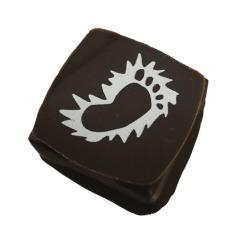2 hours ago, dscheidt said:
There's a bunch of delightful chemistry in a rinse aid. First, there are a collection of surfactants (detergents are surfactants, as well) which reduce the surface tension of the rinse water, so it sheets off your dishes better, and a thin layer of water evaporates faster from hot dishes then the same amount of water in big drops. Second is citric acid, which binds with calcium ions; calcium both forms spots, and interferes with the surfactants. There's usually a second agent for mineral removal, EDTA, which works on other polyvalient ions; again, if they're not in the water, they can't be making spots. Then there's some real magic chemistry, 'sodium polycarboxylate', which is a whole range of potential chemicals, the exact composition of which varies from brand to brand, and is probably trade secret. sodium polycarboxylate is a anti-redeposting agent; it keeps crud that's been removed from being put back. It's one of the big reasons that modern laundry detergents work as well as they do, as well.
rinse aid is used in pretty small amounts (my dishwasher seems to use about 10 ml per load, if I turn it all the way up), and lead to cleaner dishes, require you to use less detergent, and save me from having to use the electrically heated drying cycle. it costs something like a nickle a load, which is nothing, if it keeps the dishes looking good longer.
Thank you for your kind and thoughtful response, dscheidt.
I had to look up EDTA, and I have to say I wasn't impressed at all. Anything that has an LD50 in rats is something that I'd prefer not to have around my food. Of course salt can be lethal too, but it's a nutrient as well in small doses.
"Side effects[edit]
EDTA exhibits low acute toxicity with LD50 (rat) of 2.0 g/kg to 2.2 g/kg.[6] It has been found to be both cytotoxic and weakly genotoxic in laboratory animals. Oral exposures have been noted to cause reproductive and developmental effects.[12] The same study by Lanigan[12]also found that both dermal exposure to EDTA in most cosmetic formulations and inhalation exposure to EDTA in aerosolized cosmetic formulations would produce exposure levels below those seen to be toxic in oral dosing studies."
The citric acid is something I actually cook with, but it's quite expensive at the one place I ever found it.
Thank you for confirming my suspicions, and if my dishes get too spotty, I will resign myself to washing and polishing by hand. ![]() I practically do that now anyway, but I like the higher temps the dishwasher can achieve.
I practically do that now anyway, but I like the higher temps the dishwasher can achieve.





